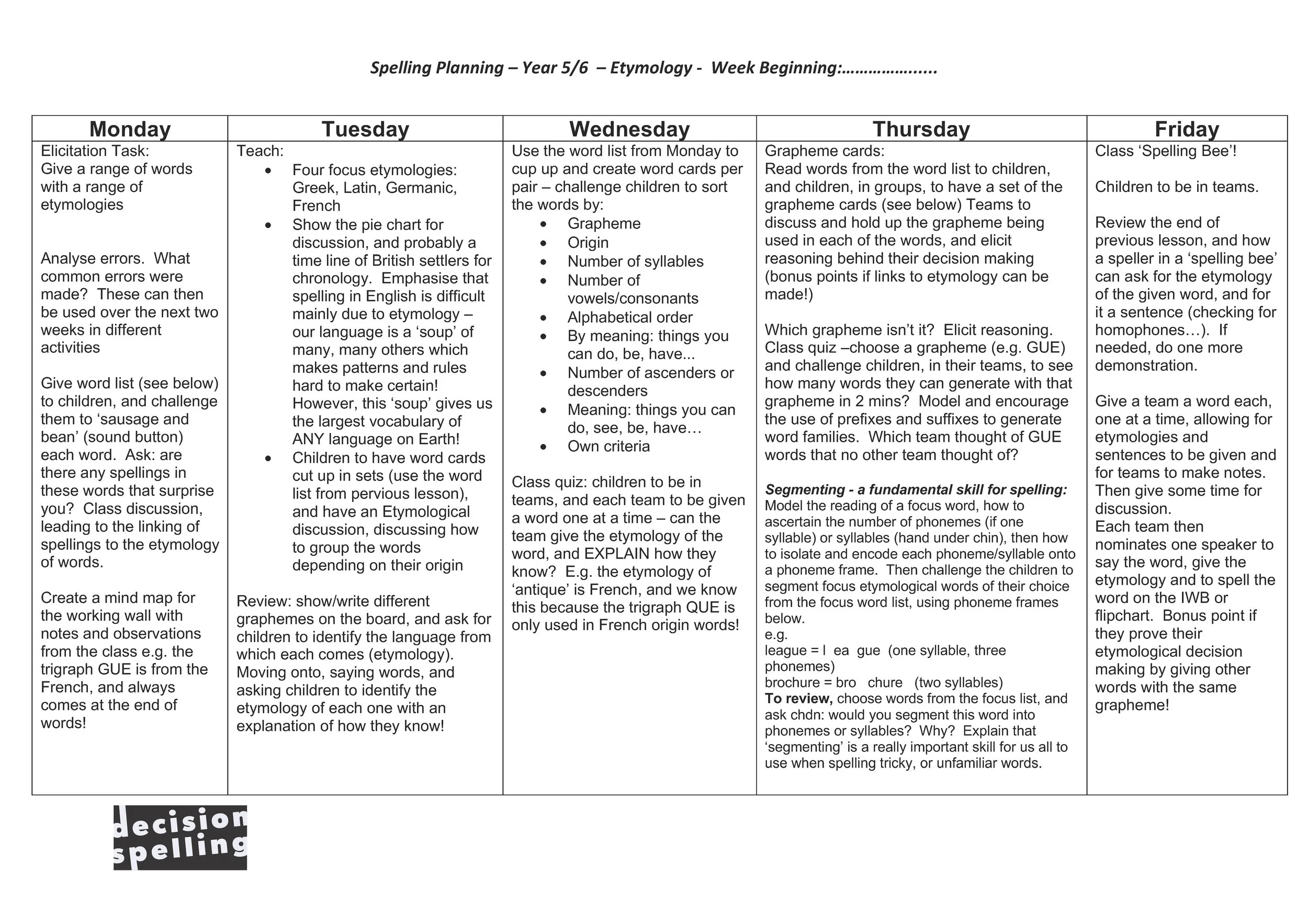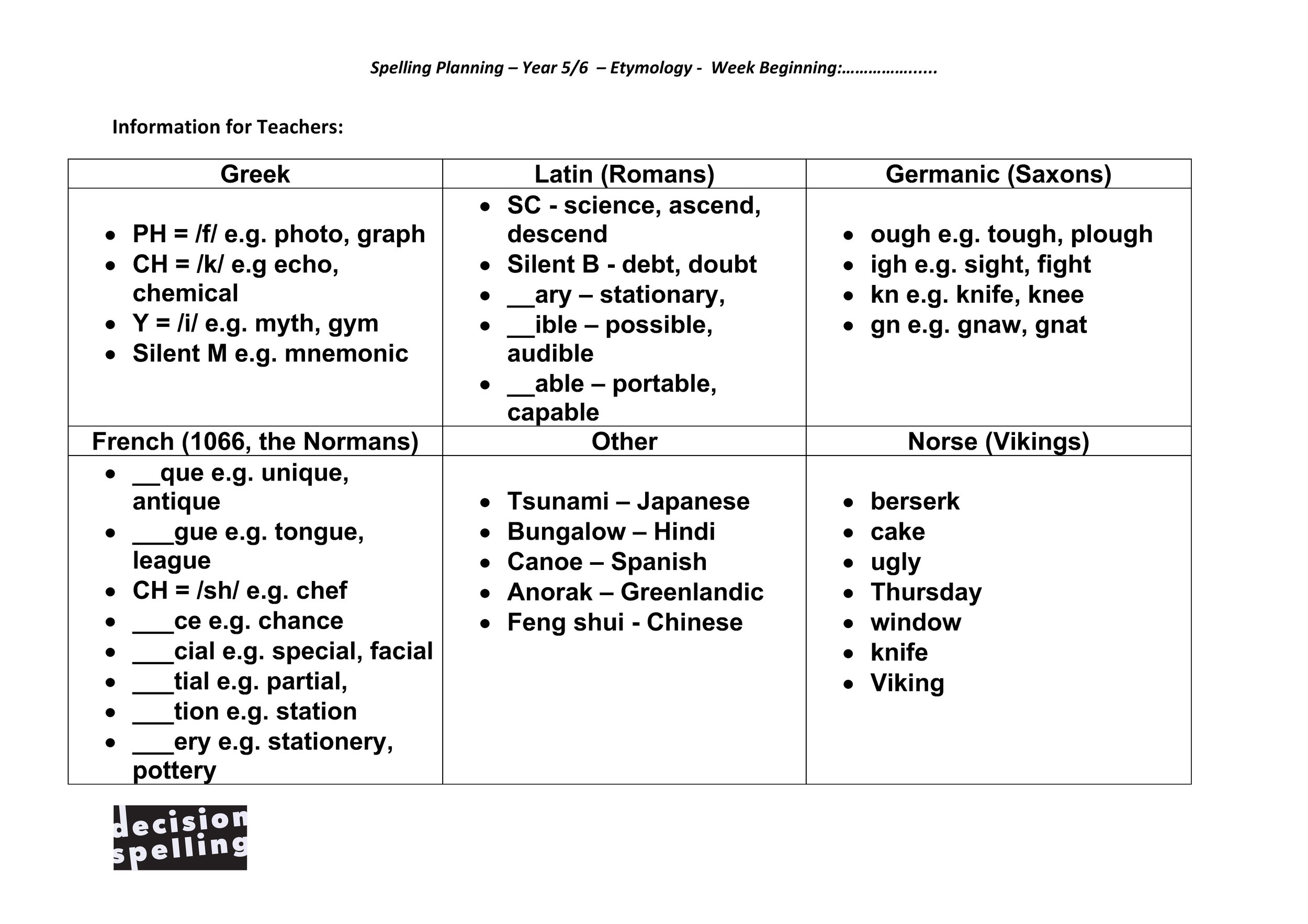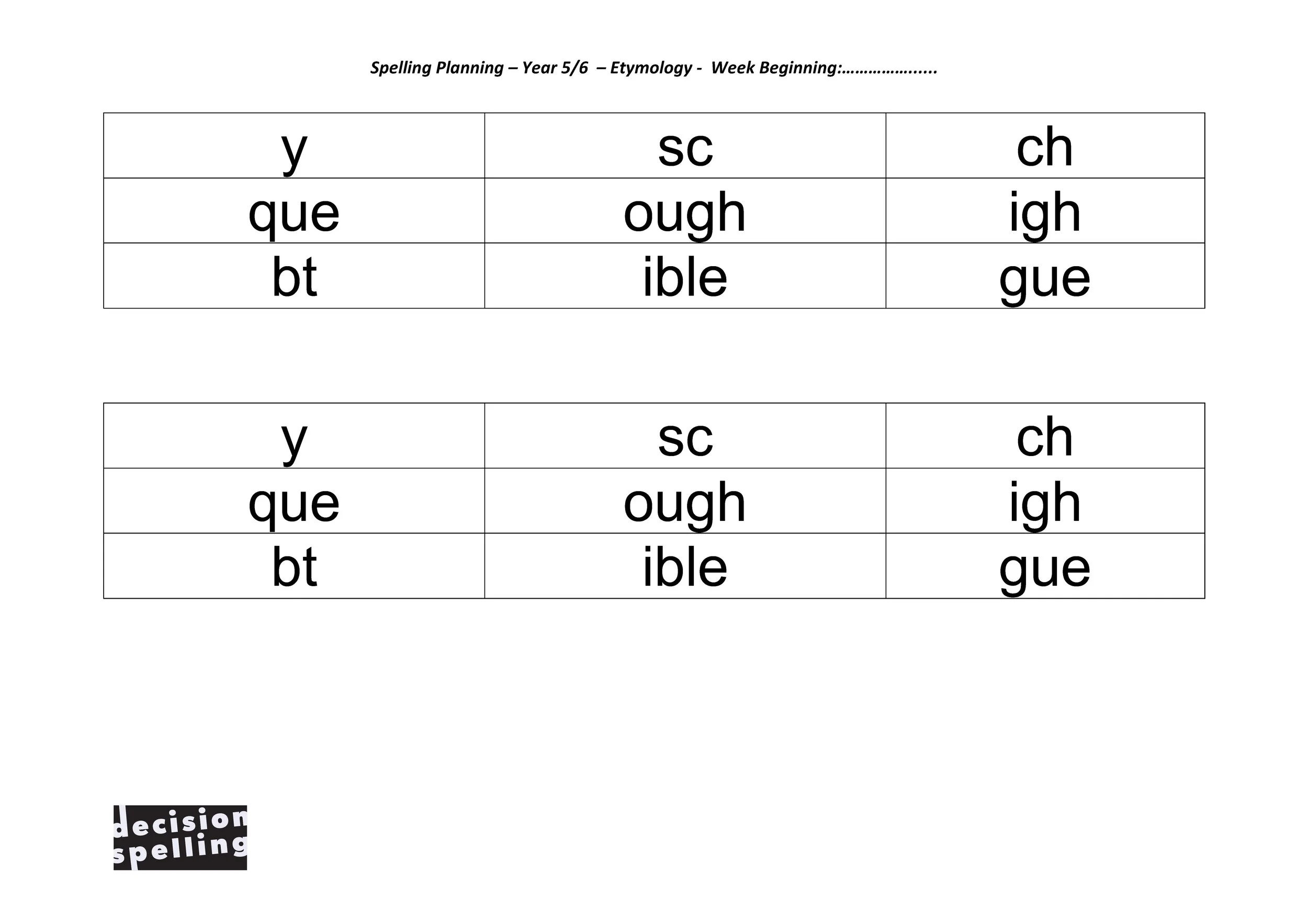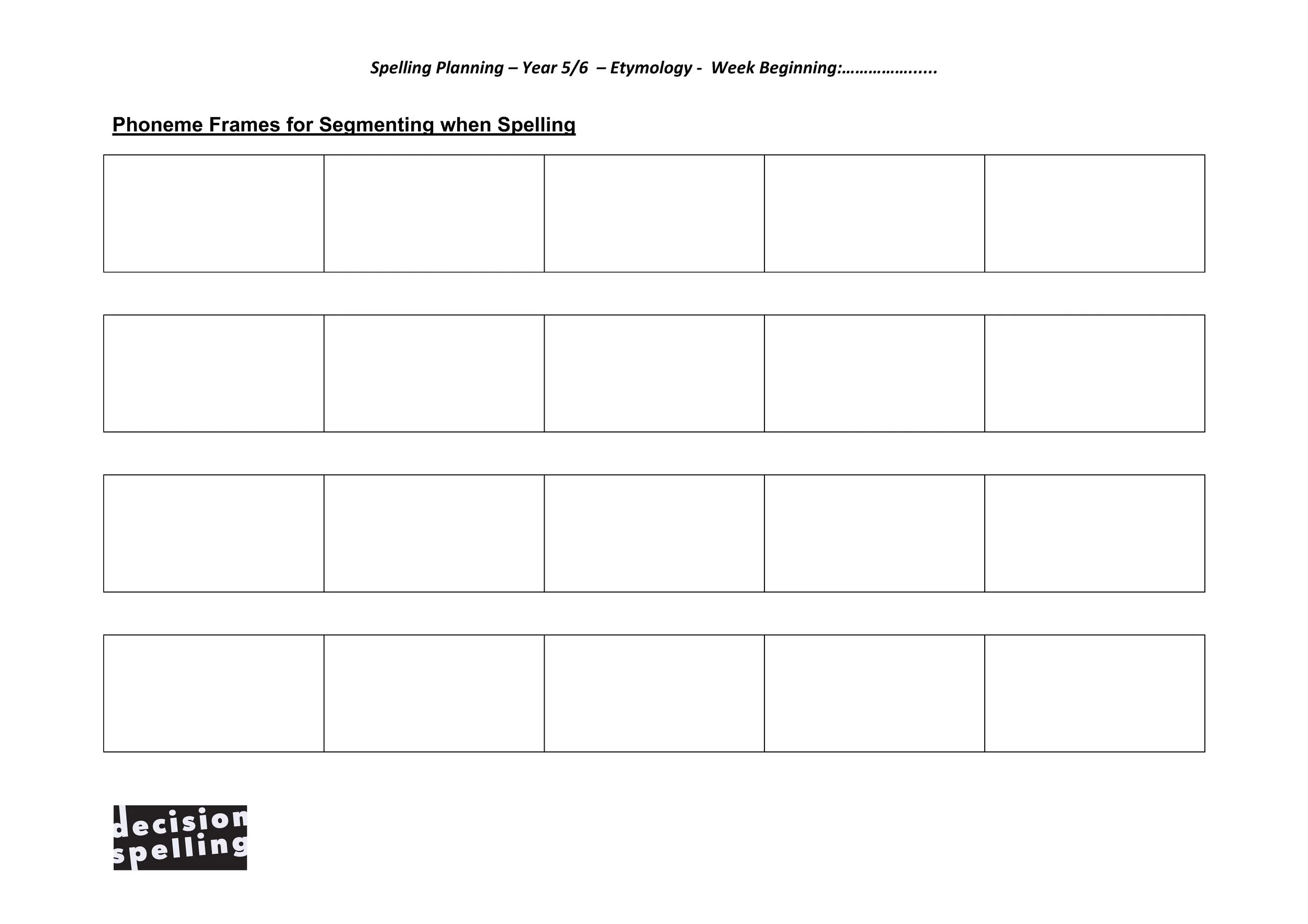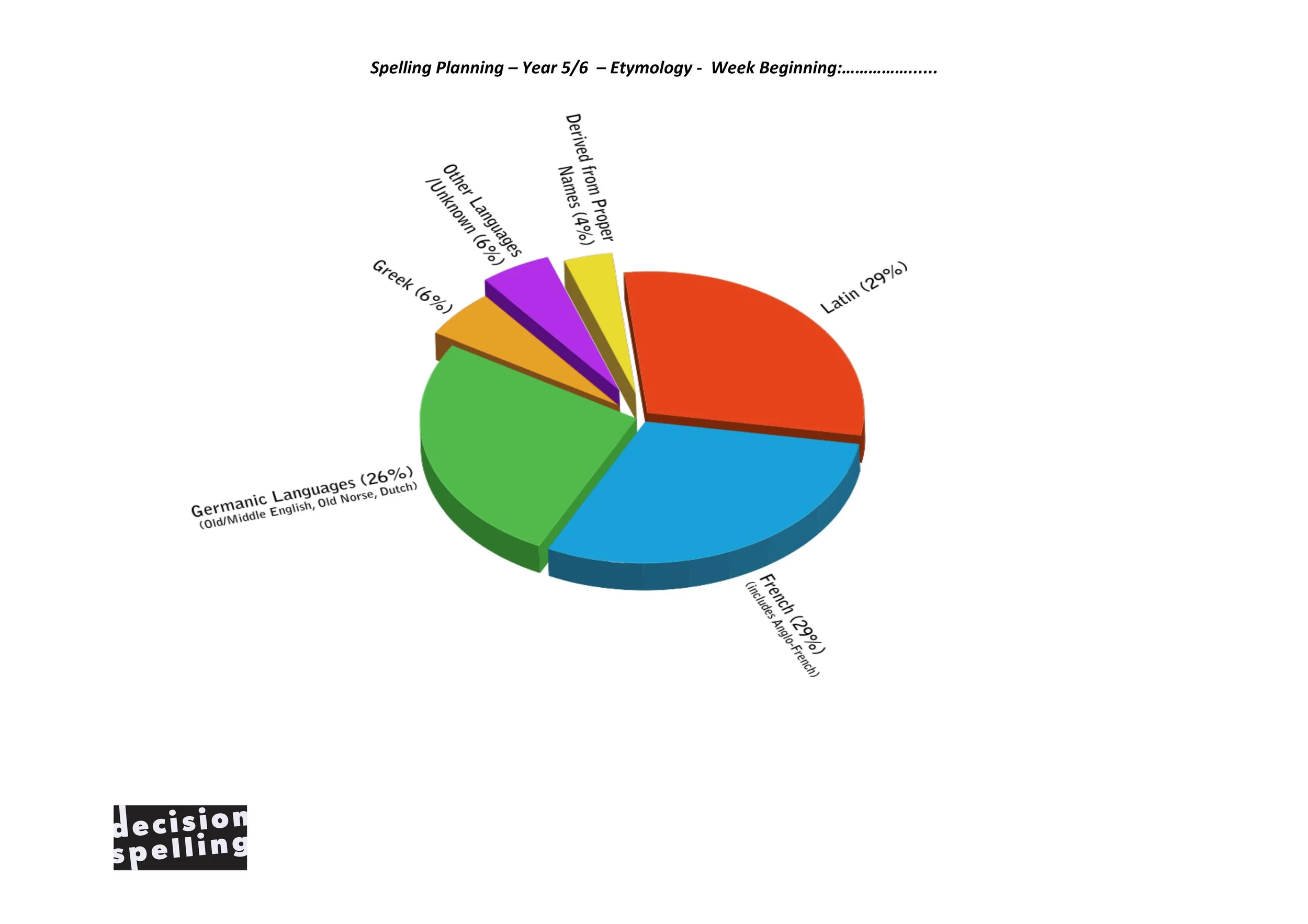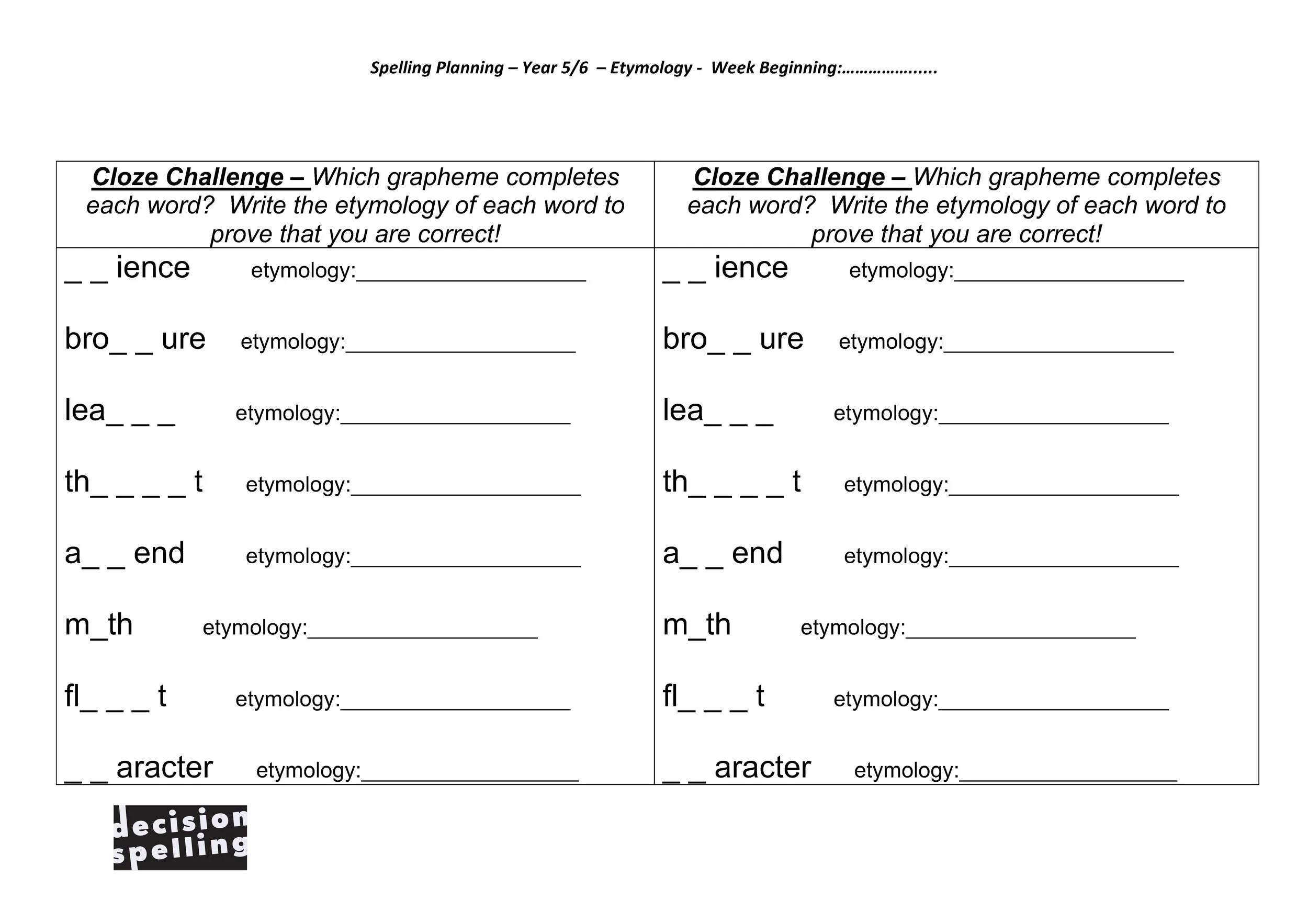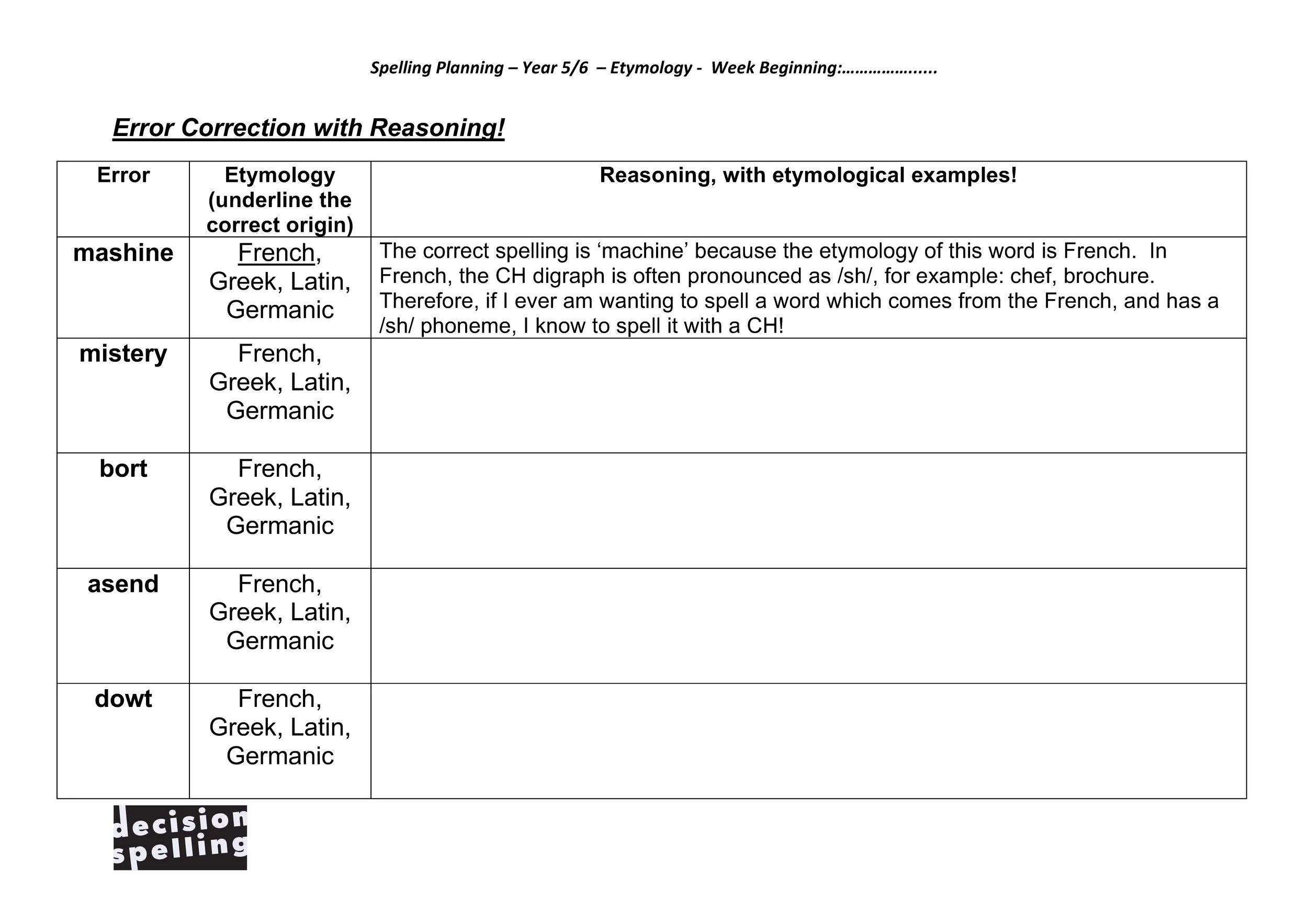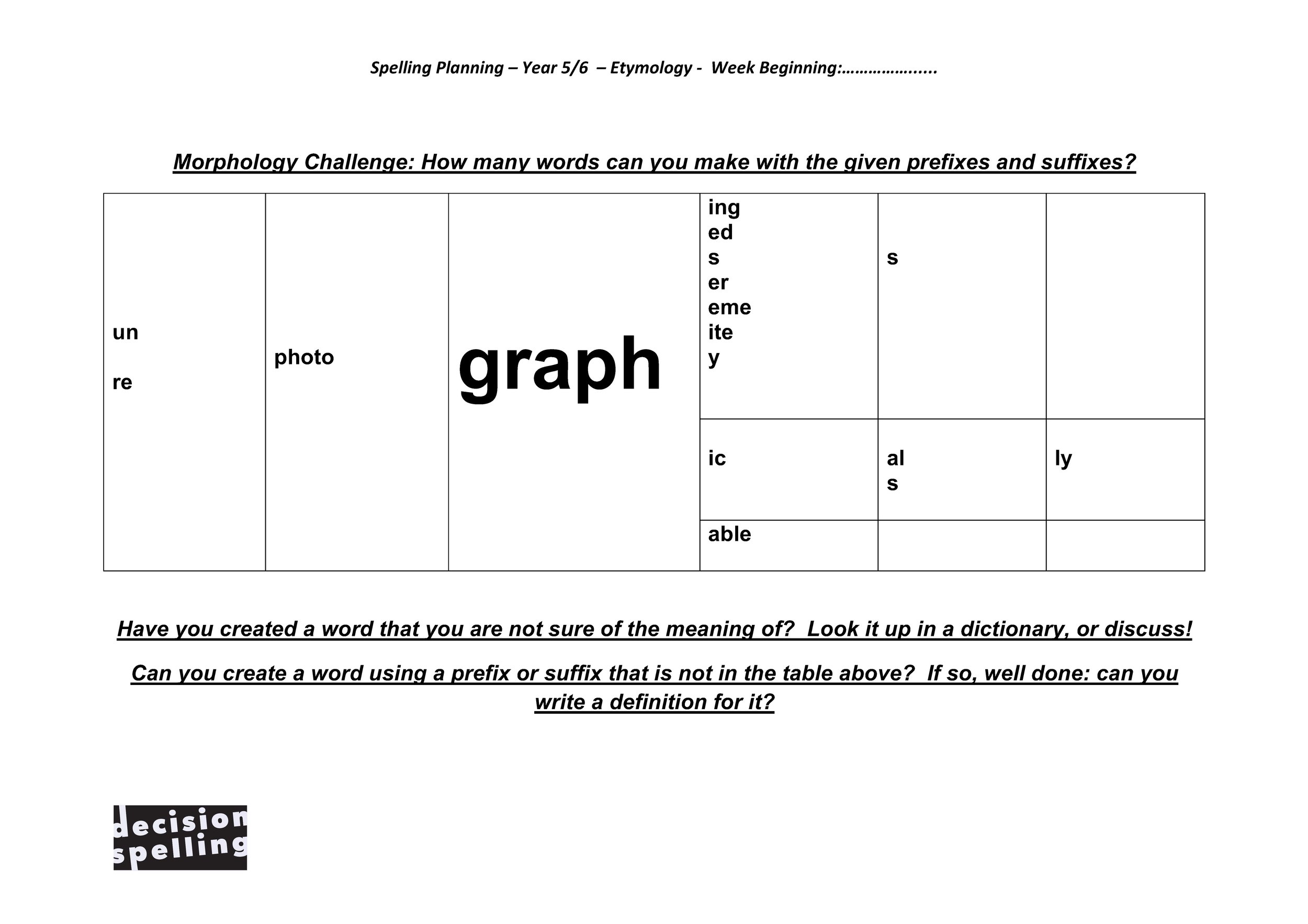Decision Spelling used as a targeted approach
Decision Spelling began as a targeted approach used with dyslexic learners from Year 2 right up into KS3, and so all of the planning and resources have a struggling speller in mind.
Finding a start point for targeted support within the planning is essential:
Option 1: If the child has been assessed for dyslexia, find their 'spelling age' within the report, and then find and use the equivalent phase group planning for their targeted support. For example, a Year 6 child may have been assessed as having a spelling age of 8:0, and so you would use the Y3/4 planning as your start point for their targeted support.
Option 2: If the child has not been assessed for dyslexia, but they are really struggling in their spelling, then as a start point it is recommended that you go back one phase group and use that planning. For example, with a struggling speller in Year 4, you would use the planning for Year 2 for their targeted support, as a start point.
Once targeted support has started, within the planning for each phase group, a suggested order for teaching the sequences is provided. However, it is always recommended that with targeted support, the needs of the child are noticed and responded to as and when is appropriate. Therefore, in whichever phase group you start your targeted support, you may notice after a few weeks that the child is really not secure with a particular grapheme or spelling pattern, and so then find and use a teaching sequence within the same Decision Spelling phase group folder, or perhaps a different phase group, which will support their needs
Targeted planning packs
Once purchased you will receive an email with a download link to the packs. Please note that once purchased redistribution is not allowed outside your organisation.
What’s included in your targeted pack?
The ‘Getting Started’ folder outlines where, and how, to begin to implement the Decision Spelling approach in your class, and school.
The ‘Planning’ folder offers you a ‘suggested’ order in which to teach the sequences, suggested termly assessments for monitoring purposes and all of the planning and related resources.
And finally, included in your pack are details to access nine 'tutorial' videos, for you to watch as many times as you like. The tutorials explain and model the most important activities which are referenced in all of the planning, and will hopefully make you feel confident and empowered to get started with the implementation of Decision Spelling in your school or setting.
Sample targeted plan
Download a free Year 5/6 Etymology Sample Plan here
Watch one of the nine 'tutorial' videos which are included within each of the phase group planning packs. Each tutorial offers you an explanation of what the point of the activity is, how to do the activity with the children, how to add in support or extension and how to review the activity at the end of a lesson.
Example of a child’s work before and after one week of Decision Spelling
Elicitation task
The child has reviewed their elicitation task, now with the knowledge to be able to independently identify and self-correct errors






